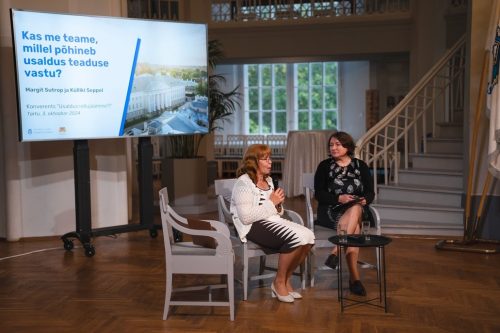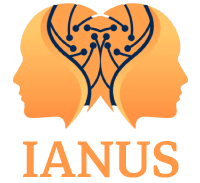On October 3, 2024, the Centre for Ethics of the University of Tartu organized a public conference titled “Trust = Survival?! – Where does trust come from and where does it go, and how to survive?”.
Experts came together to discuss trust from multiple perspectives, with a particular focus on the role of science in building public confidence, as well as on trust in times of crisis, survival, and community collaboration.
In the first half of the conference, scientists explored the topic of trust in science. The guest speaker Agata Gurzawska, researcher and scientific coordinator of the VERITY project, described the ecosystem of science and discussed actions scientists and science mediators can take to enhance public confidence in science. Philosopher, Estonian principle investigator for IANUS project and the head of the Centre for Ethics, Margit Sutrop, along with sociologist and communication researcher Külliki Seppel, delved into the question: Do we truly understand what underpins trust and distrust in science? They showcased the results of the IANUS project, discussing what constitutes trust in science and the factors related to both the trustor and trustee that influence it.
The rest of the conference focused on the relationship between community and trust, with speakers sharing real-life survival stories that highlighted moments when trust was lost or regained. The day concluded with a screening of the film Official Secrets, followed by an engaging discussion on whistleblowing led by British journalist Martin Bright and moderated by Professor Halliki Harro-Loit from the University of Tartu’s Journalism Department.

Photo by Sirli Laneman
